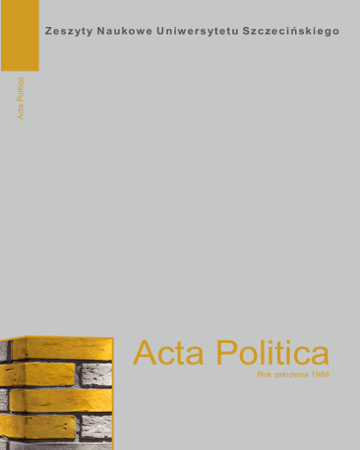SPÓR O NIEZALEŻNOŚĆ MACEDONII WE WSPÓŁCZESNEJ ,,ZJEDNOCZONEJ” EUROPIE. CZĘŚĆ 2. OD II WOJNY ŚWIATOWEJ DO WSPÓŁCZESNOŚCI
THE DISPUTE OVER MACEDONIA’S INDEPENDENCE IN THE MODERN “UNITED” EUROPE. PART II. THE PERIOD AFTER THE WORLD WAR II
Author(s): Waldemar PotkańskiSubject(s): Government/Political systems, Developing nations
Published by: Wydawnictwo Naukowe Uniwersytetu Szczecińskiego
Keywords: Republic of Macedonia; Former Yugoslavian Republic of Macedonia; greek-macedonian conflict
Summary/Abstract: The problem of the recognition of the sovereignty of the Republic of Macedonia has been presented in this article. Macedonia was established in 1991, just after the demise of the Yugoslavian Federation. Greece, a member of NATO and the EU, is the main adversary that does not want to recognise Macedonian independence. This State safeguards the division which was made after so-called the Balkan Wars in 1913. The division has lasted since the Second World War. In this way, the former lands inhabited by this population were partitioned into: Vardar (Serbian) Macedonia, Aegean (Greek) Macedonia and Pirin (Bulgarian) Macedonia. The State, over which the dispute arose, was established on 17th November 2001 as a result of “a bloodless revolution”. The People’s Republic of Macedonia (existing in former Yugoslavia) was the base for establishing the State. The dispute, which has lasted since then, is supposed to lead to the full international recognition of the State of Macedonia. But, for the time being, Macedonia has been recognised (within the UN) under a name imposed by Greece “Former Yugoslavian Republic of Macedonia” (FYROM). Apart from that the Greek government is torpedoing further Macedonian initiatives which aim at a full union. It is also against the membership of this State in NATO and EU structures.
Journal: Acta Politica Polonica
- Issue Year: 2012
- Issue No: 25
- Page Range: 39-50
- Page Count: 12
- Language: Polish

